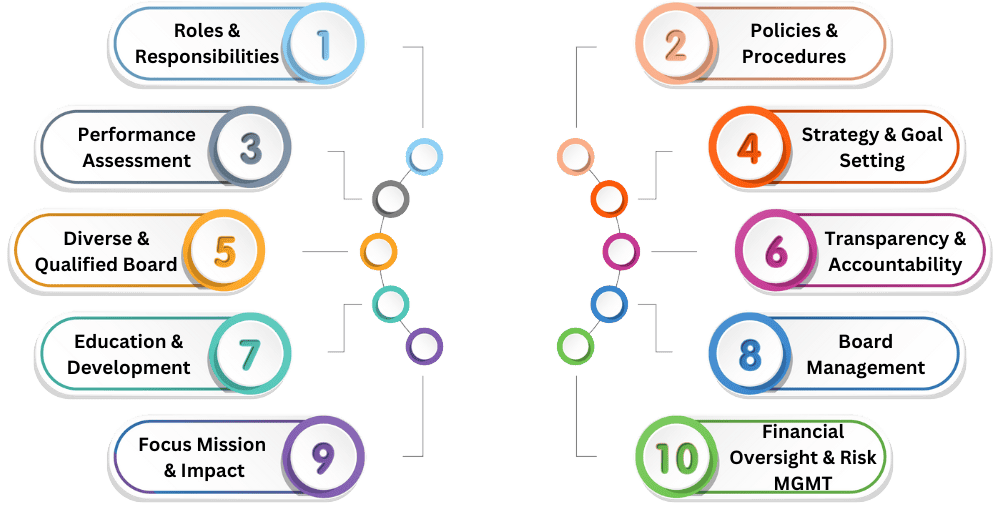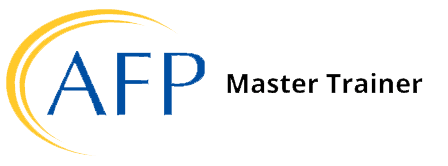Nonprofit Board Governance
A strong and well-equipped board is key to organizational success. Invoke offers customized board development, including governance training, leadership alignment, and strategic guidance. Our approach ensures that board members are engaged, informed, and equipped to drive impactful decision-making.

Testimonials
“Ivy Buchan did an outstanding job helping our organization develop our Strategic Plan and brought our Board of Directors together in a collaborative way so that we were all excited to focus and participate. Additionally, she led Board Governance discussions and helped us define our committee structure. She offered fresh and objective perspectives and suggested actionable next steps and recommendations. She is professional and has a wealth of knowledge and experience in nonprofit management, fundraising, strategic planning, and more. We highly recommend Ivy to other nonprofit leaders and would welcome the opportunity to work with her again.”
~ Maddie Young, President & CEO, YWCA Carlisle & Cumberland County
“Ivy Buchan was just what the Harrisburg Symphony Association needed. Her knowledge of nonprofit structure and governance, combined with her deep roots in Harrisburg make her an ideal thought partner. In one mid-scale planning session, she was able to bring our board together quickly and lead us to strategic initiatives in a thorough and enjoyable manner. Ivy and her team are exemplary, and a joy to work with and we highly recommend them.”
~ Matthew Herren, Executive Director, Harrisburg Symphony Association
What is Nonprofit Board Governance?
Governance is the system by which an organization is directed and controlled by its board of directors. It involves the processes, policies, and practices that guide decision-making, ensure accountability, and steer the organization towards achieving its mission.
Board governance encompasses the collective responsibility of board members to provide oversight, set strategic direction, and ensure the organization's long-term sustainability.
Key Responsibilities of Nonprofit Board Members
- Strategic planning and mission alignment: Developing and implementing long-term strategies that align with the organization's mission.
- Financial oversight and resource management: Ensuring financial stability and responsible use of resources.
- Legal and ethical accountability: Upholding legal standards and ethical practices.
- Executive leadership oversight: Hiring, supporting, and evaluating the executive director or CEO.
- Policy development and implementation: Creating and enforcing organizational policies.
- Fundraising and resource development: Securing financial support and resources for the organization.
- Program evaluation and impact assessment: Monitoring program effectiveness and measuring impact.
- Board member recruitment and development: Identifying and nurturing new board talent.
- Stakeholder engagement and communication: Maintaining relationships with donors, volunteers, and community members.
- Risk management and compliance: Identifying potential risks and ensuring regulatory compliance.
Board members must fulfill their fiduciary duties, including the duty of care, duty of loyalty, and duty of obedience. These duties ensure the organization operates effectively, ethically, and in compliance with all relevant laws and regulations.
How Board Governance Guidelines Benefit Nonprofits
- Enhanced organizational effectiveness and mission focus: Best practices help align board activities with the organization's mission, improving overall effectiveness.
- Improved financial oversight and sustainability: Proper governance ensures better financial management and long-term sustainability.
- Strengthened stakeholder trust and transparency: Good governance practices build confidence among donors, volunteers, and community members.
- Increased ability to attract funding and support: Well-governed organizations are more appealing to potential funders and supporters.
- Better risk management and compliance: Best practices help identify and mitigate risks while ensuring regulatory compliance.
- Improved board member engagement and performance: Best practices promote active participation and accountability among board members.
- Enhanced strategic planning and goal-setting: Good governance facilitates better long-term planning and goal achievement.
- Greater adaptability to changing environments: Well-governed organizations can respond more effectively to external changes.
- Stronger partnerships between the board and executive leadership: Best practices foster better collaboration between the board and organizational leadership.
By adopting these best practices, nonprofits can significantly enhance their overall performance, impact, and sustainability.
Essential Nonprofit Board Governance Best Practices

How We Customize Our Board Governance
We understand that every nonprofit has unique needs. Our customization process includes:
- A free consultation to discuss your organization's needs and how Invoke can help.
- Confirming the goals for our time together.
- Crafting a proposal, if needed.
- Services provided at an hourly rate or through customized packages.
- We can start with a minimum of only five hours.
- In-person and virtual options are available.
This personalized approach ensures that the board governance services directly address your organization's specific challenges and objectives.
Get Started with Board Governance Guidelines
Set up a free consultation to learn how Ivy can help elevate your
nonprofit to be the best version it can be.




